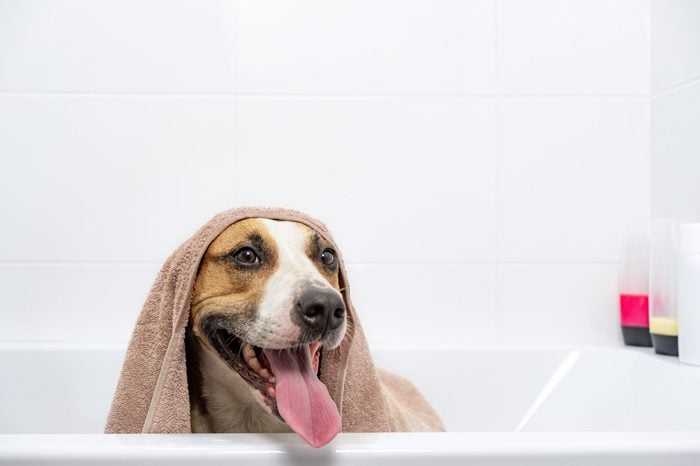
When a bath doesn’t solve the problem
As much as we love our fur babies, we have to admit an inconvenient truth: Sometimes they smell. They are animals, after all, but past that, they occasionally do gross things like rifling through garbage, rolling around in garbage, and eating actual garbage. But when nothing like that has happened yet an odor still persists, what’s going on? It could be a medical issue that needs attention right away. In fact, an abnormal smell is one of the big signs that your “healthy” dog is showing illness symptoms. Here are some of the conditions that could be causing your dog’s unnaturally smelly breath, skin, or poop, as well as what you should do to remedy the situation ASAP—not just for the sake of your nose but for the health of your pet.
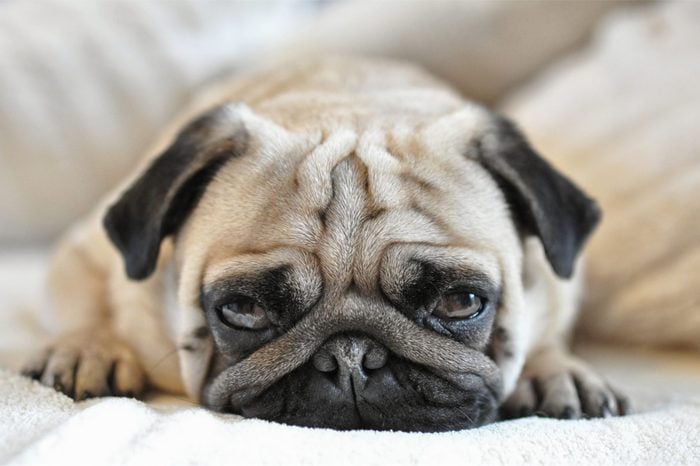
Skin fold pyoderma
Skin fold pyoderma is a fancy term for a skin infection that occurs between folds of skin and causes a strong, musty odor. It can occur in dogs of all ages, sizes, and breeds, but it’s more common in overweight canines or breeds with rolls of skin, such as pugs, English bulldogs, shar-peis, and mastiffs. Infection happens when bacteria, which exist naturally on dogs’ bodies, overgrows within the warm, moist environment between skin folds, explains the VCA.
The smell is pungent, and the infection itself can cause itching and pain for your pup. If you notice this issue, you should see your vet right away. She can prescribe a medicated skin cleanser and/or topical ointment to treat the infection. If left untreated, the infection can worsen, and surgery may be needed. Here are some other possible reasons your dog is so itchy.
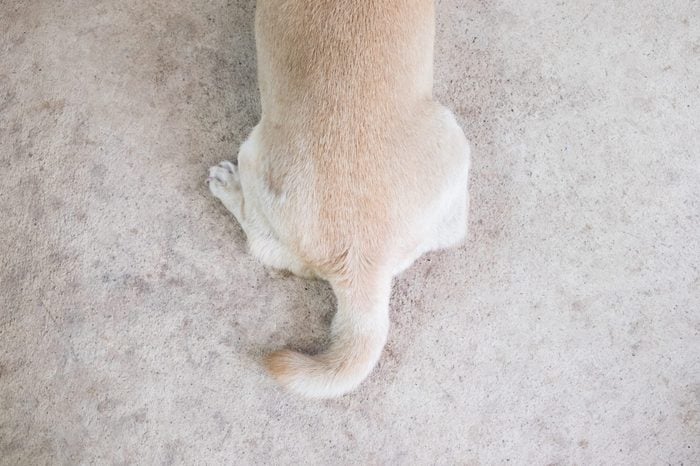
Anal gland infection
If you smell a rank, fishy odor, your dog’s anal glands may be to blame. These glands secrete a viscous liquid that gives their poop its unique scent—something that other dogs can learn a lot from. In fact, it’s one of the reasons why dogs like to smell other dogs’ butts. But humans can learn that something from this particular smell, too. “We typically shouldn’t smell the discharge from these glands because they should only work during defecation,” says Christie Long, DVM, head of veterinary medicine at Modern Animal. “If you smell a super smelly fishy odor when your dog isn’t pooping, then it’s possible they’ve involuntarily discharged the glands. This can happen if they get scared suddenly, if they are really full, or because one or both glands are infected.”
If it is a one-off accident, then you shouldn’t worry, according to Dr. Long. However, if it happens consistently, it could be due to an infection or very full glands that need to be expressed. If it’s the latter issue, a skilled groomer can help. But if it’s an infection, you’ll need to visit the veterinarian for help.
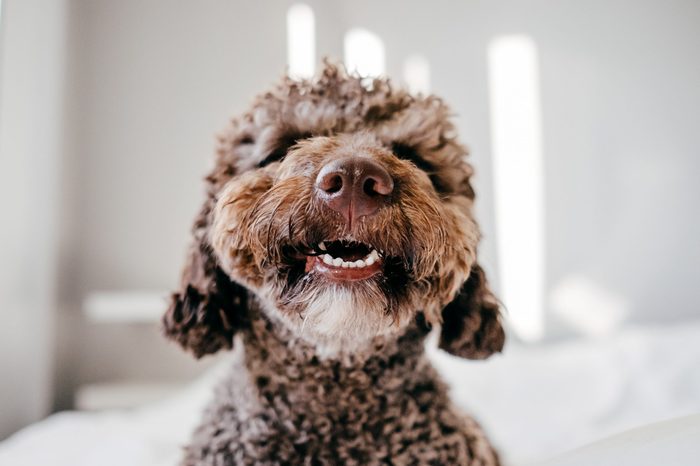
Dental disease
A faint “doggy breath” smell is completely normal, but a change in scent—especially if it changes to a very rotten odor—is indicative of dental disease. “Lots of pet owners think their dog would stop eating if they had a toothache, but it turns out that dogs are so driven to eat that they’ll go right on eating despite fractured teeth and painful tooth-root abscesses,” notes Dr. Long. “If your dog has a horrible odor to his breath, then it’s definitely time to visit the veterinarian to get the root of the problem.”
To help prevent dental disease, you should brush your dog’s teeth at least two or three times per week. Veterinarian-approved dental chews can also help. Here are some other potential reasons your dog has bad breath—and how to get rid of it.
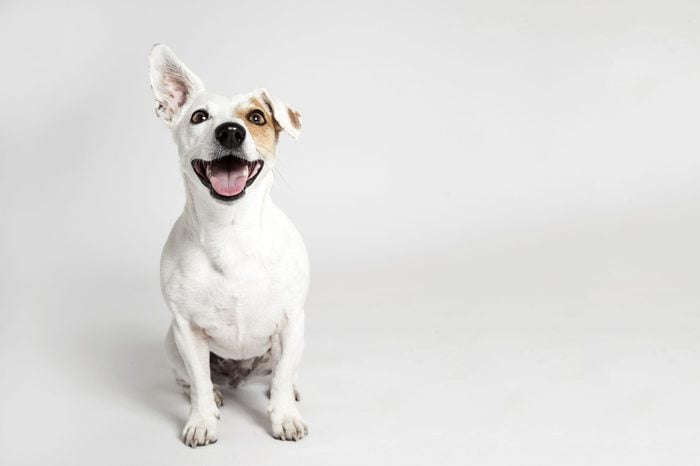
Oral cancer
Poor oral hygiene isn’t the only potential cause of doggy halitosis. If your pup’s breath suddenly smells like rotten garbage, it could be a sign of oral cancer, says Sue Downing, DVM, a veterinarian oncologist for the VCA Animal Specialty & Emergency Center. Don’t panic, but don’t delay either. Since it’s difficult for a layperson to identify the true cause of an oral issue, Dr. Downing says it’s best “to see a veterinarian as soon as possible to examine the mouth and sample any abnormal tissue.” These are the other warning signs of cancer in dogs that every owner should know.
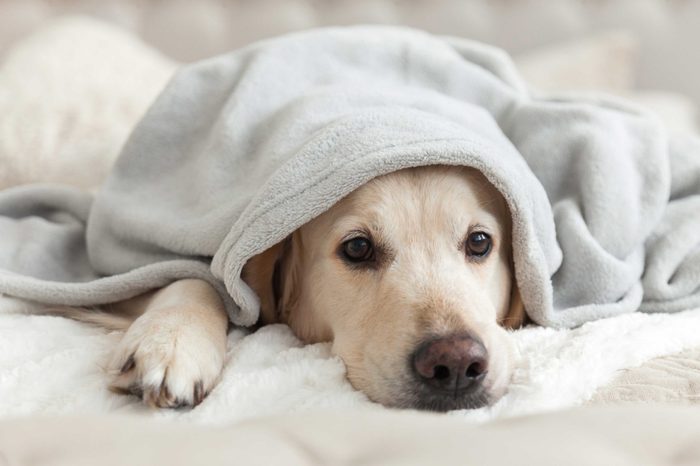
Diabetes
Your pup may be super sweet, but her breath should never smell that way. Similar to humans, noticeably sweet-smelling breath can be a sign of diabetes. One in four dogs develops this condition caused by an insulin deficiency, says PetAssure.com, and it can occur for a number of reasons, ranging from genetics to pancreatic disease to a congenital disorder. While dogs of all ages and breeds can develop diabetes, it’s particularly common in those ages 6 and up, and beagles, terriers, and Samoyeds are among the most susceptible breeds.
In addition to a sweet or sugary smell on your dog’s breath, other telltale signs include increased thirst and urination. Your veterinarian will need to run a test to diagnose diabetes, and should your dog be diagnosed, this non-curable condition will need to be managed with medication.
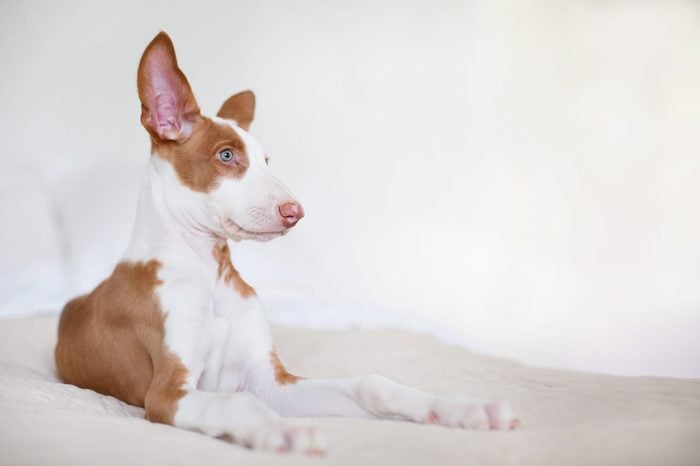
Yeast infection
“Dogs can definitely get yeast infections, and they most commonly occur in the ear canals,” says Dr. Long. “They can also range in the spaces between their toes and inside folds of skin. Dogs that routinely get yeast infections almost always have allergies to food or inhaled substances.”
So, how do you know if your dog has a yeast infection? You’ll likely smell, well, a yeasty smell—or something similar to old, spilled beer. To treat and prevent these infections, your veterinarian can recommend wipes that will help keep the area dry, which in turn reduces the population of yeast on the skin. Dr. Long adds, “Ear infections due to yeast can almost always be successfully treated with topical anti-yeast preparations. In all cases, the primary source of the problem—the allergic disease itself—should be addressed with medications designed to do so.”
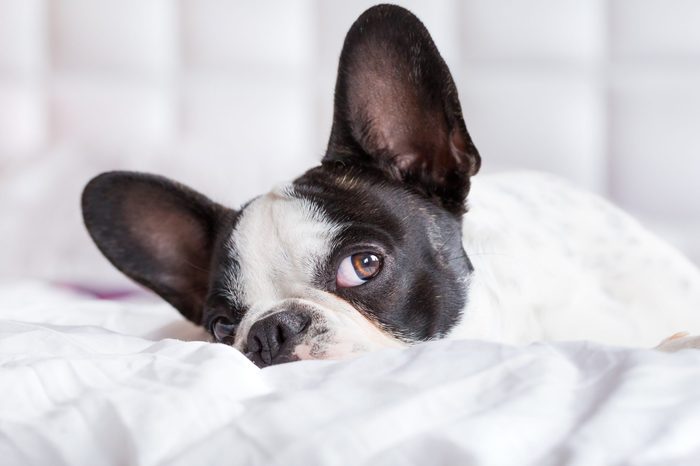
Kidney failure
“Dogs that are in kidney failure often have the odor of urine on their breath,” says Dr. Long. “This is because their kidneys cannot effectively remove waste products from the blood. Kidney failure has a number of causes in dogs, including infectious diseases such as leptospirosis, cancer, and hereditary problems that result in declining kidney function over time.” Any dog with suspected kidney failure needs prompt medical attention in order to determine and treat the underlying cause.
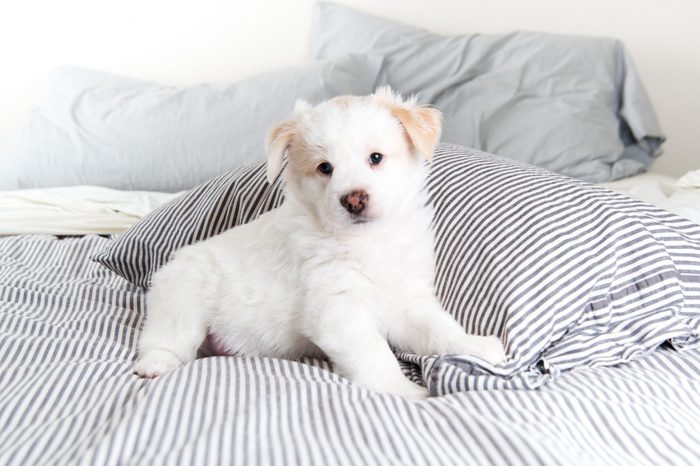
Parvovirus
All poo stinks, but when your pup has runny stool that’s remarkably foul-smelling, it could be a sign of a serious viral infection called parvovirus. It’s highly contagious and should be addressed immediately in order to improve your dog’s chances of survival, says PetMD. Your vet will focus on curing the secondary symptoms—which include dehydration, loss of appetite, and vomiting—to bring your pet back to health. While parvovirus can affect any dog, it’s mainly an issue for those between 6 weeks and 6 months old, and it can be prevented with vaccinations. Diarrhea that lasts more than 24 hours is always a sign you should pay a visit to the vet, along with these 13 warning signs your dog is in pain.
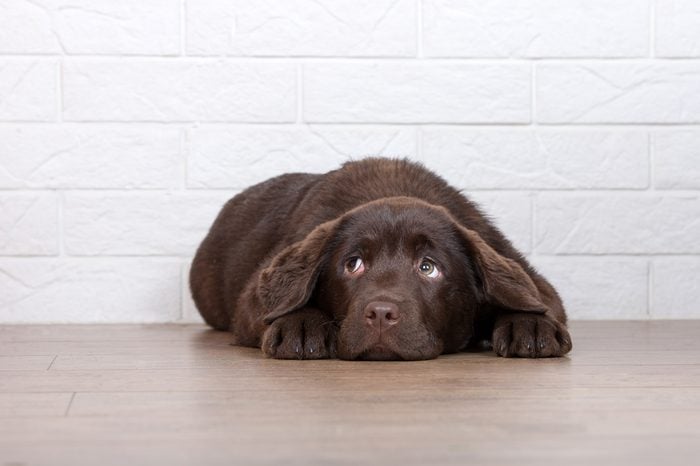
Urinary tract infection (UTI)
Though the scent of a UTI can be different for each dog, it’s generally a very pronounced odor that’s notably different from their normal urine scent. Some describe it as musky, others say it’s a rancid or garbage-y smell, and still others say it’s a “rotten fish” smell. Other symptoms include increased thirst and urination, peeing in the house, bloody or cloudy urine, whimpering during urination, and genital licking.
If you suspect your dog has a UTI, see your vet right away, advises Tricia Tovar, DVM, a veterinarian at the VCA Animal Specialty & Emergency Center. “Your veterinarian can do urine testing to determine whether it’s a UTI or not,” she says. “They’ll also prescribe an antibiotic to help clear up the infection.” Without care, the infection can spread into your dog’s kidneys and eventually cause failure.
Next, make sure you know these trusted tips that will help your pet live longer.
